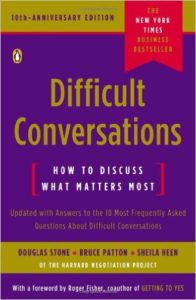 Your app’s user interface is terrible. Your business plan is flawed. Your budget is a pipe dream. Your code isn’t efficient. Clients are unhappy with your interpersonal skills. Your meetings are too long. You don’t seem to get along with your developers. You are hard to work with. You are being kicked off the task force because you aren’t adding any value. The tone of your e-mail was too informal. Your department is being given to someone else. No, we won’t need you for this project. No, we don’t need you at all.
Your app’s user interface is terrible. Your business plan is flawed. Your budget is a pipe dream. Your code isn’t efficient. Clients are unhappy with your interpersonal skills. Your meetings are too long. You don’t seem to get along with your developers. You are hard to work with. You are being kicked off the task force because you aren’t adding any value. The tone of your e-mail was too informal. Your department is being given to someone else. No, we won’t need you for this project. No, we don’t need you at all.
We all get feedback. Usually it’s a combination of good and bad. There’s praise and helpful criticism. Sometimes the feedback is about our company, sometimes about our project, sometimes about our team, and sometimes, well, about us. Sometimes we take the feedback in good stride. Other times, we get hurt and angry—and don’t listen. Speaking for myself, I tend to get defensive when given feedback that’s less than glowingly effusive.
Own your feedback. A short paper published by Harvard Business Review, called“Difficult Conversations 2.0: Thanks for the Feedback,” can help.
“In the realm of feedback, the receiver—not the giver—is the key player in the exchange. Here’s how to become a world-class receiver,” write Douglas Stone and Sheila Heen, founders of Triad Consulting Group. The pair teach negotiation at Harvard Law School, and have written a couple of great books, Thanks for the Feedback: The Science and Art of Receiving Feedback Well (Even When it is Off Base, Unfair, Poorly-Delivered, and Frankly, You’re Not in the Mood) and Difficult Conversations: How to Discuss What Matters Most.
I heartily recommend both of Stone & Heen’s books. For now, let me share some of the wisdom in the five-page paper, which is focused somewhat on feedback from managers, but which is broadly applicable to all types of feedback. Stone & Heen write:
By becoming a skillful receiver of feedback, you can achieve three important benefits:
• Take charge of your life-long learning: When we get better at receiving feedback, we take charge of our own learning and can accelerate our growth.
• Improve our relationships: The way we handle feedback has an impact on our relationships.
• Reduce stress and anxiety: For the more sensitive among us, there’s one more important benefit: getting better at receiving feedback reduces stress and anxiety.
The authors say that it’s only natural to evaluate feedback, determine what is accurate and inaccurate, and then focus on what we see as inaccurate:
You can find something wrong with just about any feedback you get. Maybe it doesn’t address the constraints you’re under, it’s outdated, biased, coming from only a few people, or only part of the story. The problem is, when we focus on what’s wrong with the feedback, we lose sight of what might be right about it; and there is also almost always something right about it.
They continue:
Receiving feedback well doesn’t mean that you always have to take the feedback or agree with the assessment. But it does mean engaging in order to first truly understand the feedback, and then deciding what to do about it.
We receive feedback every day. The feedback might be about us from our managers. It might be about products from customer comments left on an open forum, or sent via Twitter. Feedback can be elating—everyone loves a five-star review. It can also be painful and debilitating. As developers, techies, managers and humans, let’s get better at receiving it.

 This essay was first published on the
This essay was first published on the